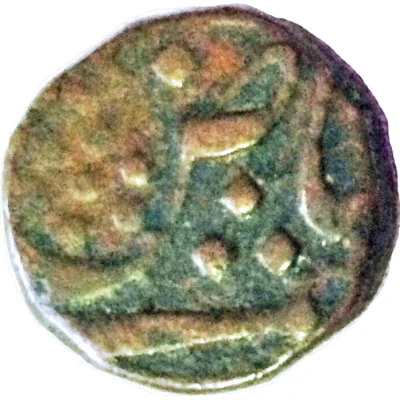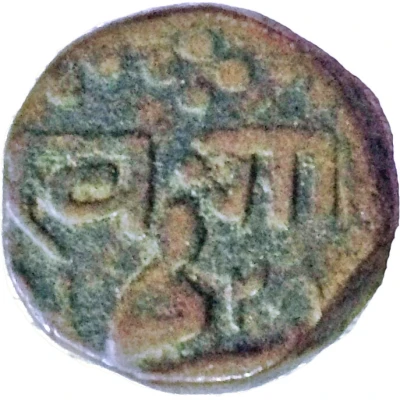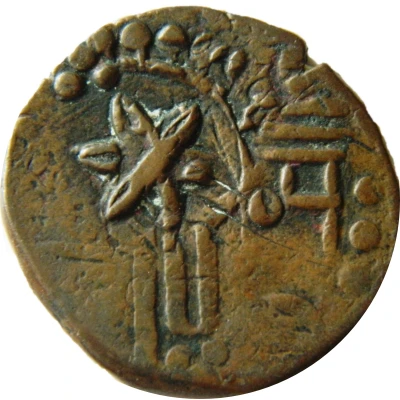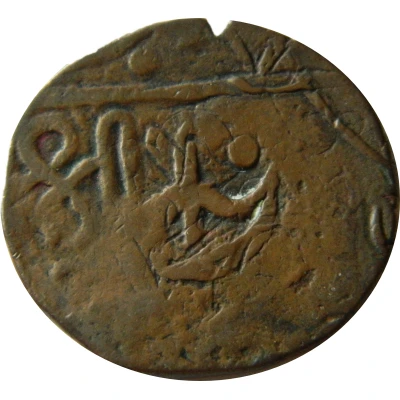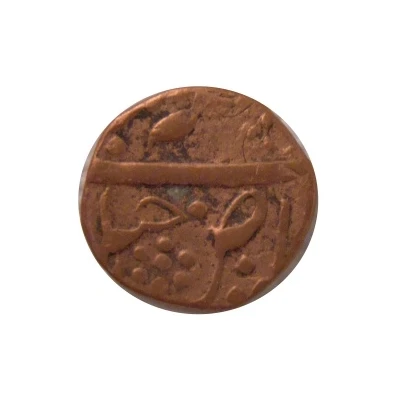
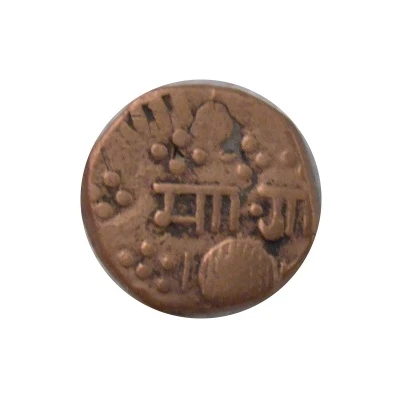

© Parimal (CC BY-NC-SA)
1 Paisa - Malhar Rao
| Copper | 7.63 g | 20.5 mm |
| Issuer | Princely state of Baroda (Indian princely states) |
|---|---|
| Type | Standard circulation coin |
| Years | 1288-1290 (1870-1875) |
| Calendar | Islamic (Hijri) |
| Value | 1 Paisa (1⁄64) |
| Currency | Rupee |
| Composition | Copper |
| Weight | 7.63 g |
| Diameter | 20.5 mm |
| Thickness | 2 mm |
| Shape | Round (irregular) |
| Technique | Hammered |
| Demonetized | Yes |
| Updated | 2024-10-05 |
| Numista | N#43077 |
|---|---|
| Rarity index | 73% |
Reverse
Nagari maa gaa (for Malhar Rao), sphere or circle below, flanked by AH date, scimitar below
Lettering: मा गा
Edge
Smooth, irregular
Interesting fact
The 1 Paisa coin from the Princely state of Baroda, issued during the reign of Malhar Rao (1288-1290 or 1870-1875), is interesting because it was made of copper, a metal that was widely used for currency in India during that time period. Copper coins were popular because they were durable, resistant to corrosion, and had a low intrinsic value, making them suitable for everyday transactions. The fact that this coin was issued during the 19th century, when the British East India Company was still present in India, highlights the complex history of currency and trade in the region during that time. Additionally, the fact that the coin weighs 7.63 grams, which is relatively heavy for a coin of its size, suggests that it may have been used for larger transactions or as a store of value, rather than for smaller, everyday purchases.
